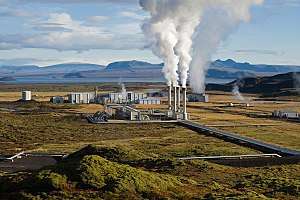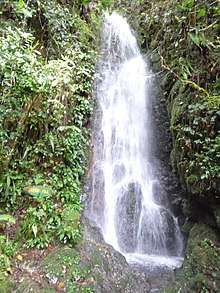Geothermal energy in Italy
Geothermal energy in Italy is little used, other than for power production (see main article Geothermal power in Italy), but growing.
Italy stays above a relative thin crust, with four large areas of underground heat:
- the first is Tuscany, with the Larderello fields.
- the second is in Campania, the Phlegraean Fields
- the third, very large and little known, the south of Tyrrhenian Sea
- the fourth is the Strait of Sicily, around the undersea Empedocles volcano and Lampedusa island
As a result, projects are in development in the coming years and more exploration is expected to find new locations.
Exploration
Research about the potential has started in 1976, following the oil crisis, with work of ENI and ENEL, which started jointly to bore hundredth of wells in Italy, creating a complete map of the underground resource. But in the '90, the exploratory activity stopped.
Following results a mapping of Italy in four areas:
- very high potential, with water of more than 150 °C (302 °F) temperature at less than 3 km depth; area extends from NW-SE of Genoa to the Aeolian Islands.
- water temperature between 90 °C (194 °F) and 150 °C (302 °F) at less than 3 km depth.
- water temperature between 30 °C (86 °F) and 60 °C (140 °F) at less than 3 km depth.
- low potential, no commercial utilization at less than 3 km depth.
Italy uses its lower temperature fluids for spas, agriculture, industry and district heating. A large portion of house heating is concentrated in the Abano spa area, in northeast Italy. As district heating the most important plants are in Ferrara and Vicenza in the eastern Po Valley, about 1990. Smaller district heating plants are found in Bagno di Romagna and Acqui Terme.[1]
See also
References
- ↑ Carella, Roberto (1999). "Italian geothermal district heating systems" (PDF). GHC Bulletin, December 1999. Archived (PDF) from the original on 4 August 2016. Retrieved 4 August 2016.

